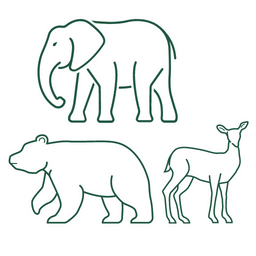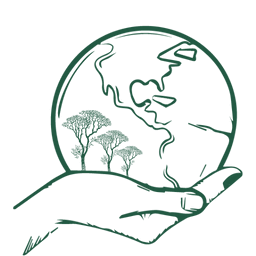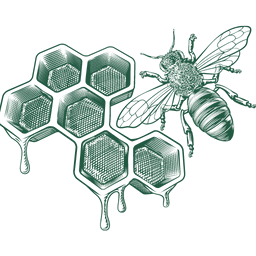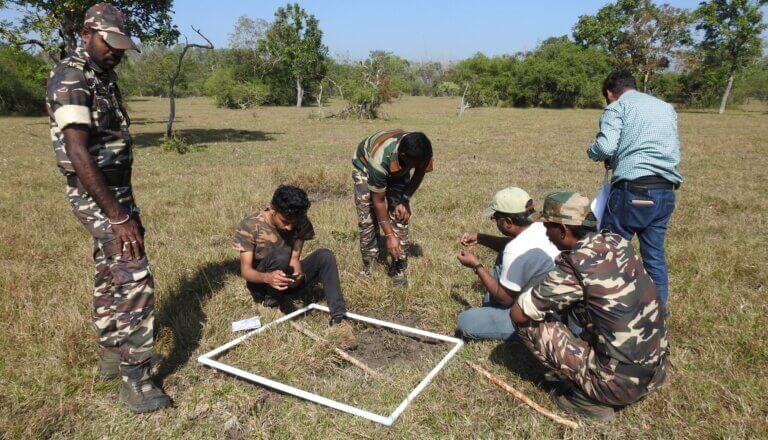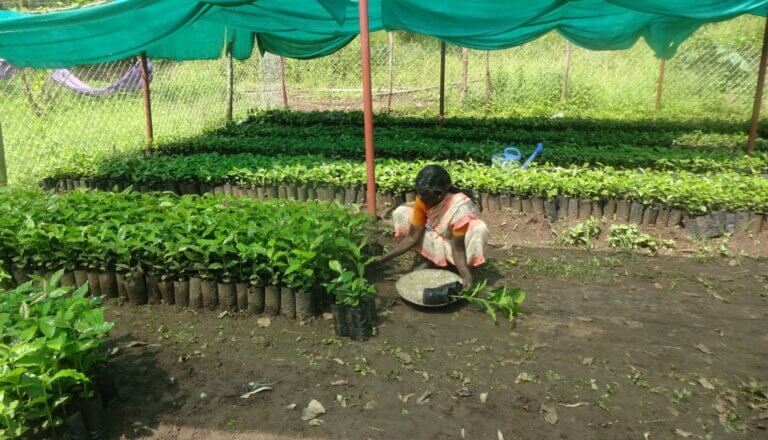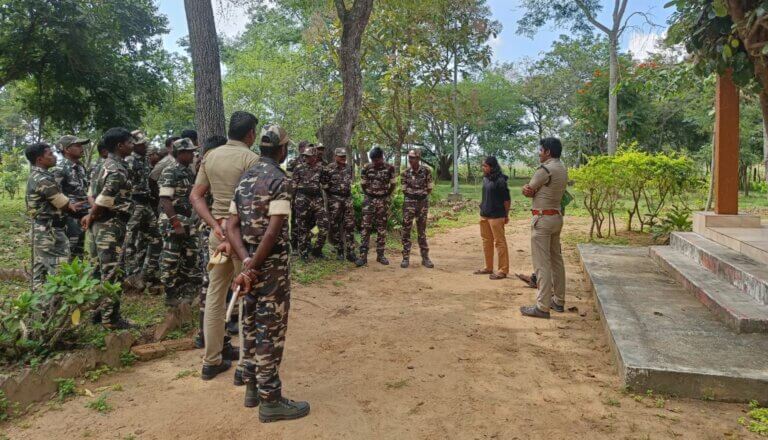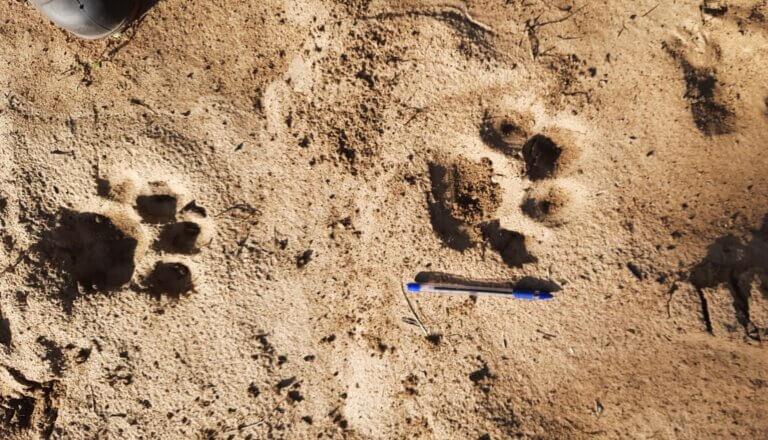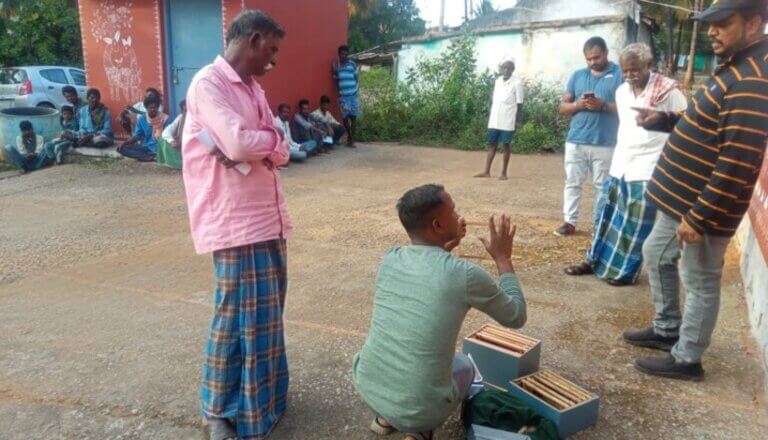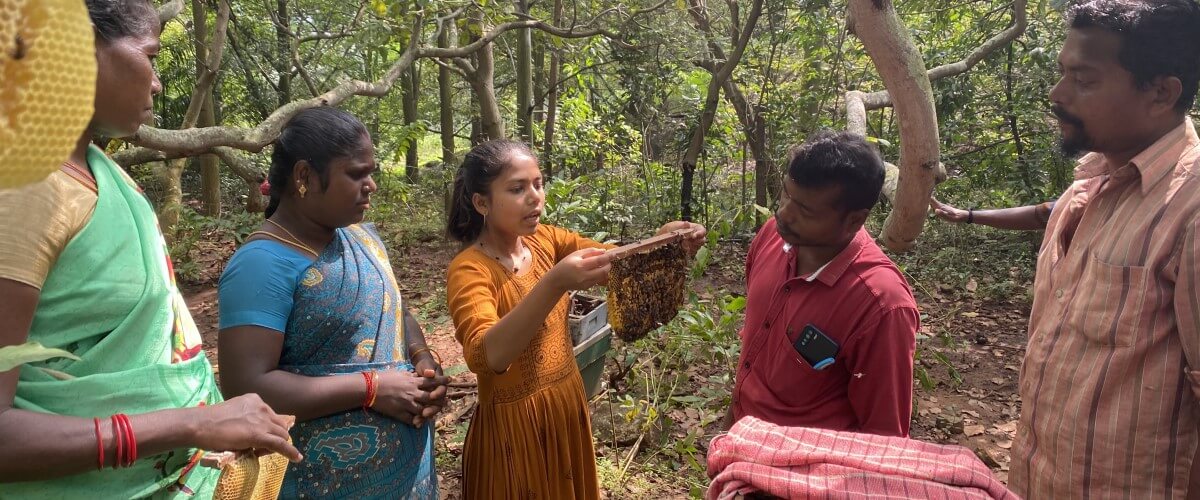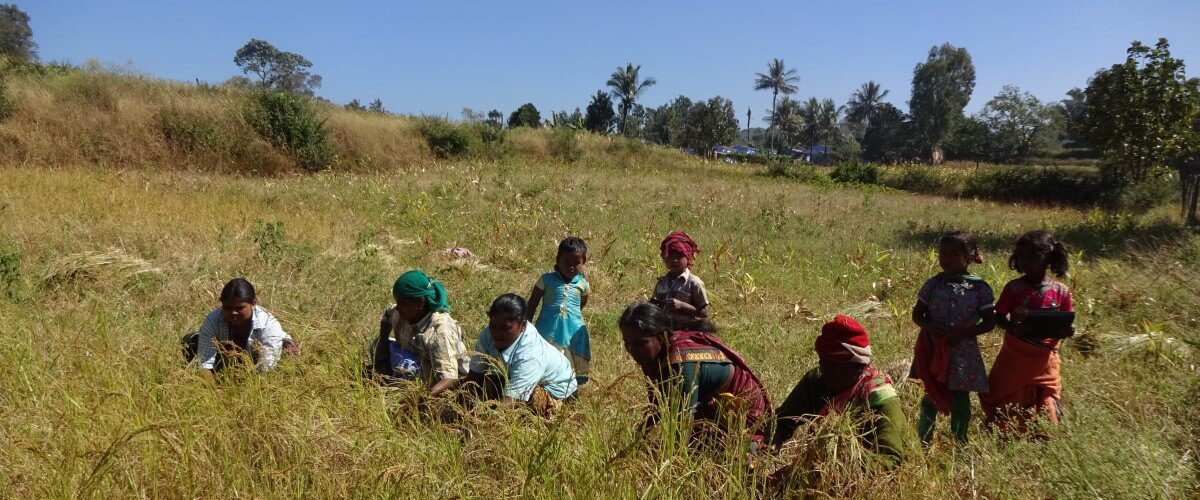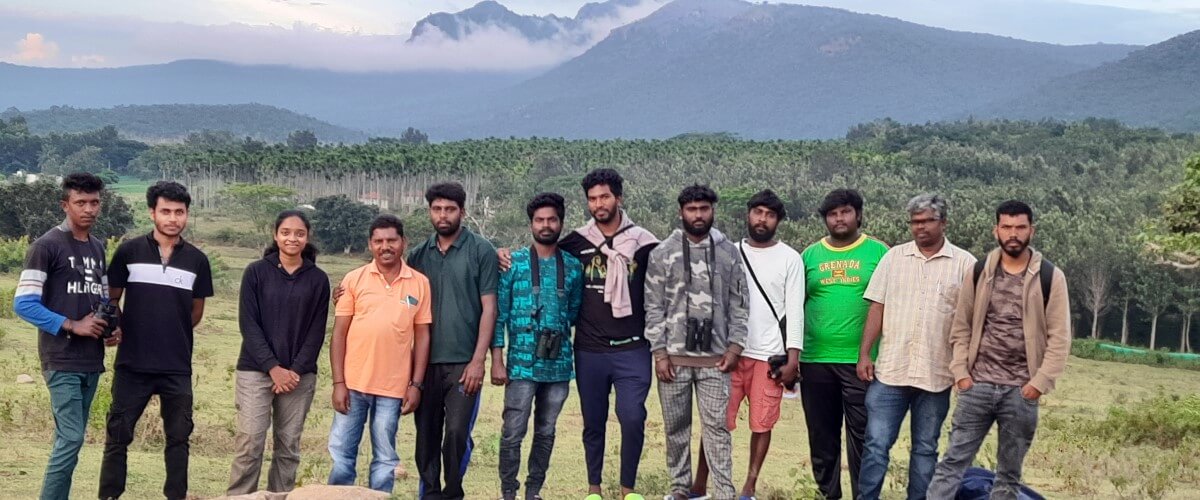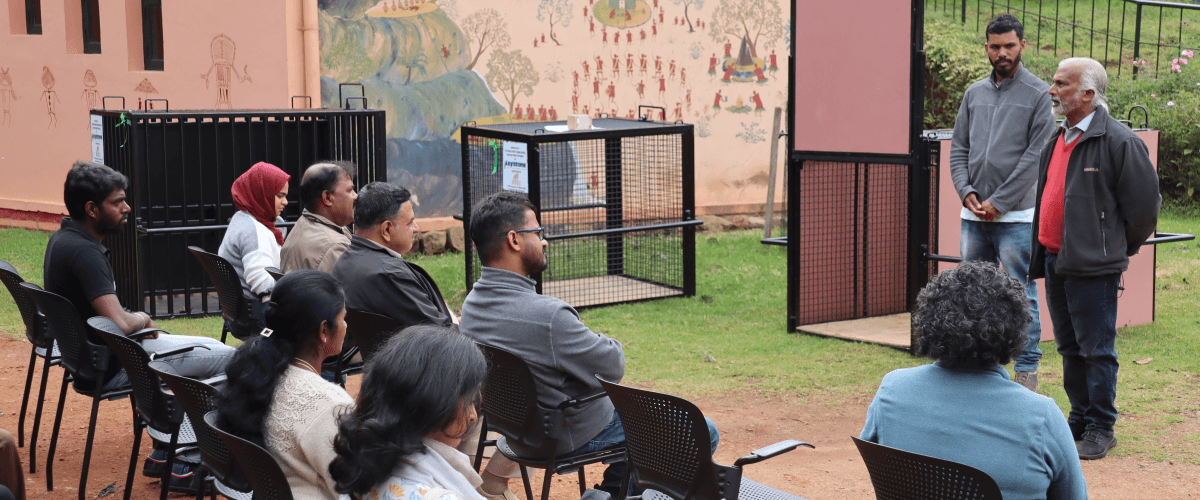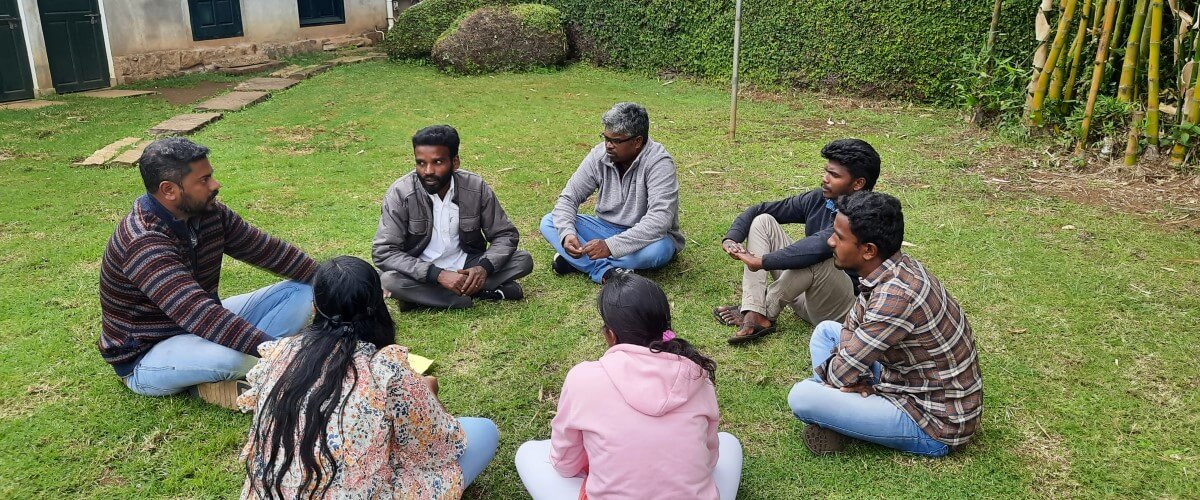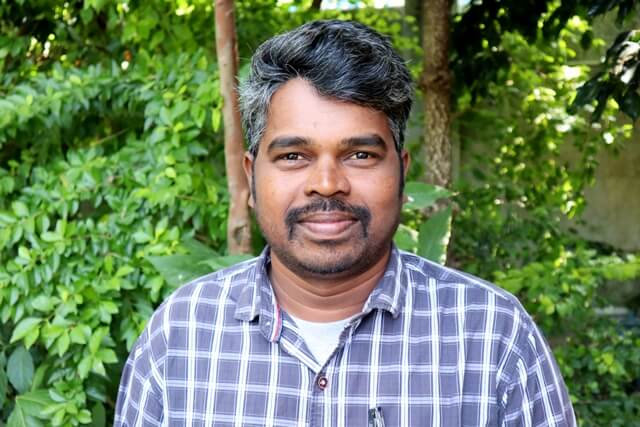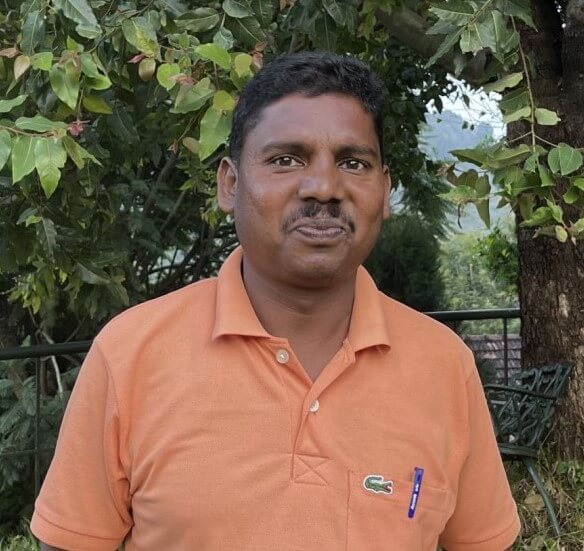In the early 2000s, STR was noted as an important space for promoting beekeeping of Apis dorsata and Apis florea bees within the Sholigar tribe. During this time, community members received beeboxes and hives from the local Forest Department, but knowledge of traditional techniques had already begun fading, and the resources weren’t utilised. Keystone saw an opportunity and began working to close the knowledge gap. From 2006 to 2009, the team closely studied bee diversity, behaviour and patterns, and conducted surveys on Non-Timber Forest Produce-based livelihoods.
Over the decades that followed, work expanded into long-term ecological monitoring of wild bees, plants and birdlife, human-wildlife interactions, roadkill surveys as well as leading one of the first studies of the grasslands in STR.
The Barefoot Ecology project implemented by the Climate Change programme found its beginnings partly in Hasanur and neighbouring Punanjanur. Many went on to join the Forest Department to work on anti-poaching efforts, while some continue to work with us, and others have joined the Asare Community Foundation in Punanjanur, working on promoting agroecology and nutrition supported by wild and organic foods.
The field centre also nurtures five rich nurseries of over 2,000 wild plants each that provide a valuable resource for restoring public spaces, enhancing government school grounds and used by the local panchayat on a regular basis. One of the 14 Climate Smart Schools run by Climate Change is present in Punanjanur, with team members from the field centre taking classes on wildlife and agroecology basics, along with seven other schools, and six in Hasanur. Since 2022, the team has been organising wildlife ecology trainings for community members and forest department officials.




